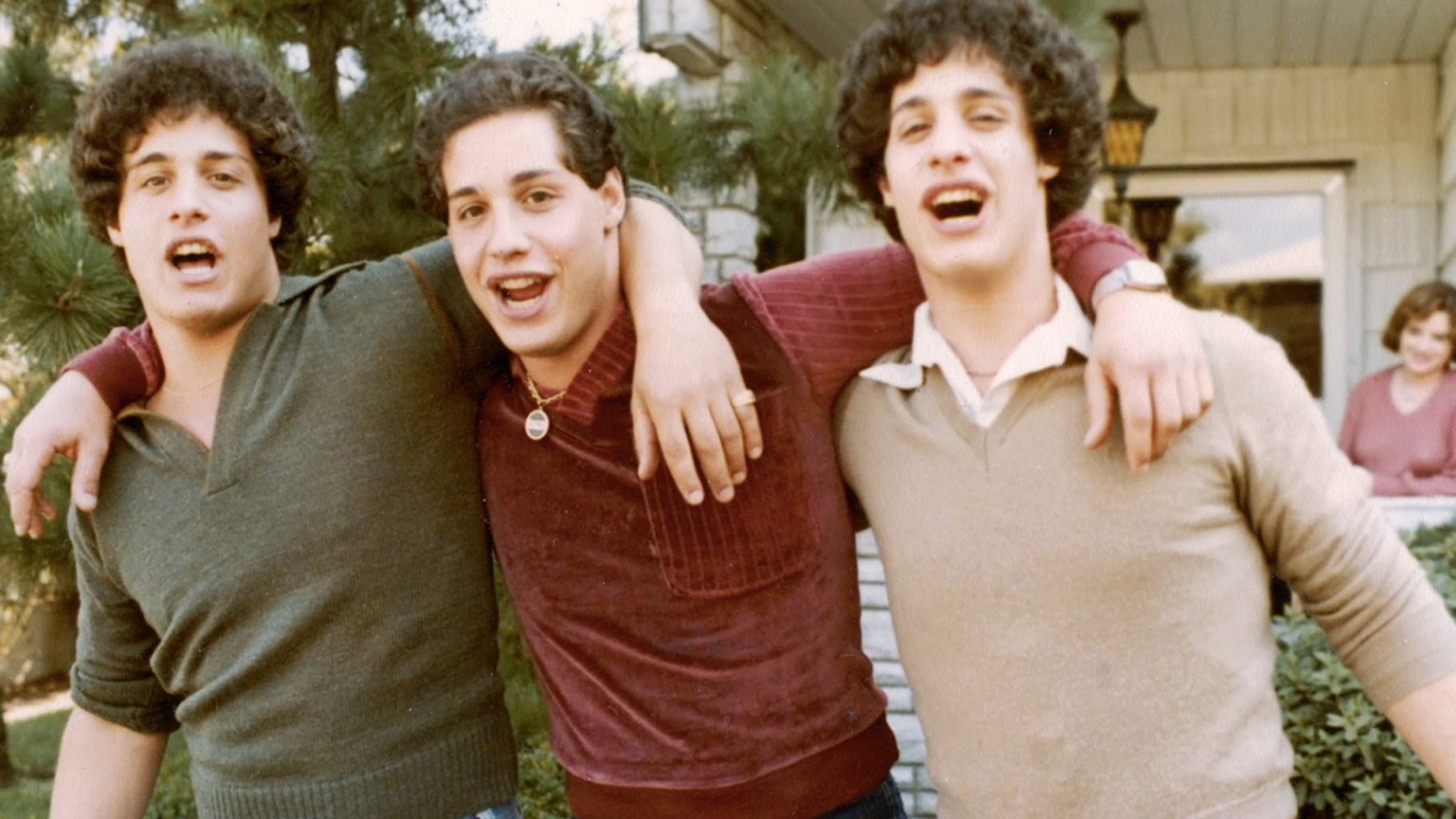Tim Wardle’s new documentary, Three Identical Strangers, details the kind of premise most non-fiction filmmakers can only dream of encountering. A young man begins his first day at college, only to find people he has never met approaching him and recognizing him as someone else. It turns out that his twin brother, from whom he was separated at birth, attended the same school one year earlier.
When their reunion makes the news, a third brother appears. Identical triplets Bobby Shafran, Eddy Galland, and David Kellman were separated as infants and raised by three separate families, none of which had any prior knowledge of the others’ existence. What begins as a feel-good tale of reunited brothers uses one jaw-dropping revelation after another to paint a much darker narrative with a host of complex moral implications.
The triplets’ story received widespread news coverage when it first materialized in the early 1980s, and for a brief time, the brothers were media darlings. The director gives us this lighthearted introduction and then picks up where the fun took a more sinister turn. Because Wardle is not breaking entirely new ground with the content, much of the film’s significance rests on the shoulders of its narrative execution. It primarily utilizes cinematic reenactments, archival footage, and sit-down interviews to recreate the roller-coaster experience shared by the triplets and their families and friends.
And much of the film’s emotional power stems from wrenching interviews and the harsh truths that they reveal. Though it’s clear that the subjects have had to relive their tumultuous narrative numerous times, their integrity as storytellers and their sincerity keeps it engrossing. Tonal shifts abound, and the pacing of Wardle’s revelations is enough to keep you on the edge of your seat throughout.
Though Bobby, Eddy, and David’s story is fun at first, learning just why they were separated represents a much darker turn for the film. Without revealing any spoilers, it must be said that these revelations are the crux of the narrative, and they amount to both its strength and its weakness. The shock value will keep eyes glued to the screen, but what happens when the credits roll? In many ways, the impact of Three Identical Strangers hinges on experiencing it for the first time, which raises questions about the film’s potential for lasting impact and whether it will hold up after multiple viewings, or if it will lose potency once its cards are on the table.
Whether or not the film’s power lingers, it remains thoroughly thought-provoking. The story has much to say, and much to question, about the scientific debate over nature versus nurture — the question over how much of human behavior is predetermined by genetics and biology, and how much results from one’s upbringing and socialization. Just how did these three boys become different men, and what do those differences signify about their genetic or familial make-up?
Though the film takes no official stance on the matter, preferring to raise questions and maintain focus on the facts behind the initial separation, Wardle does occasionally demonstrate certain biases. At one point, an aunt of one of the triplets asserts that nurture always trumps nature. The director goes on to pay close attention to how Eddy’s upbringing with a strict father may have affected his life. Though numerous subjects attest to Eddy’s less-than-ideal childhood, his father included the ways in which Wardle’s camera lingers on the father seem to indicate that the director’s mind is made up about the man, and leaves little room for nuance.
It is certainly worth questioning the film’s manipulation of subjects and events. Withholding certain facts for dramatic effect betrays the director’s intention to make the film as intriguing as possible. His cinematic manipulation reaches an apex when he has two of the film’s subjects watch controversial comments made by another subject in a separate interview.
This puts the debate over the purpose of documentaries front-and-center. Should documentaries be presented solely as fact or should they be presented in a way that tells the best story? Modern documentaries tend to walk a very narrow line between those two goals, and if Three Identical Strangers has a flaw, it’s when it strays too far towards the director wanting to tell a good story, regardless of his interference with the subjects of his film.
Of course, Wardle isn’t doing anything morally wrong with his film. If anything, he shines a light on an important and tragic story that the public should know about. Still, he does manipulate both his subjects and his audience. The story itself will have you wondering about the lengths to which people are willing to go to find answers. Whether or not Wardle has created a timeless film remains to be seen, but it is a film well worth watching.




